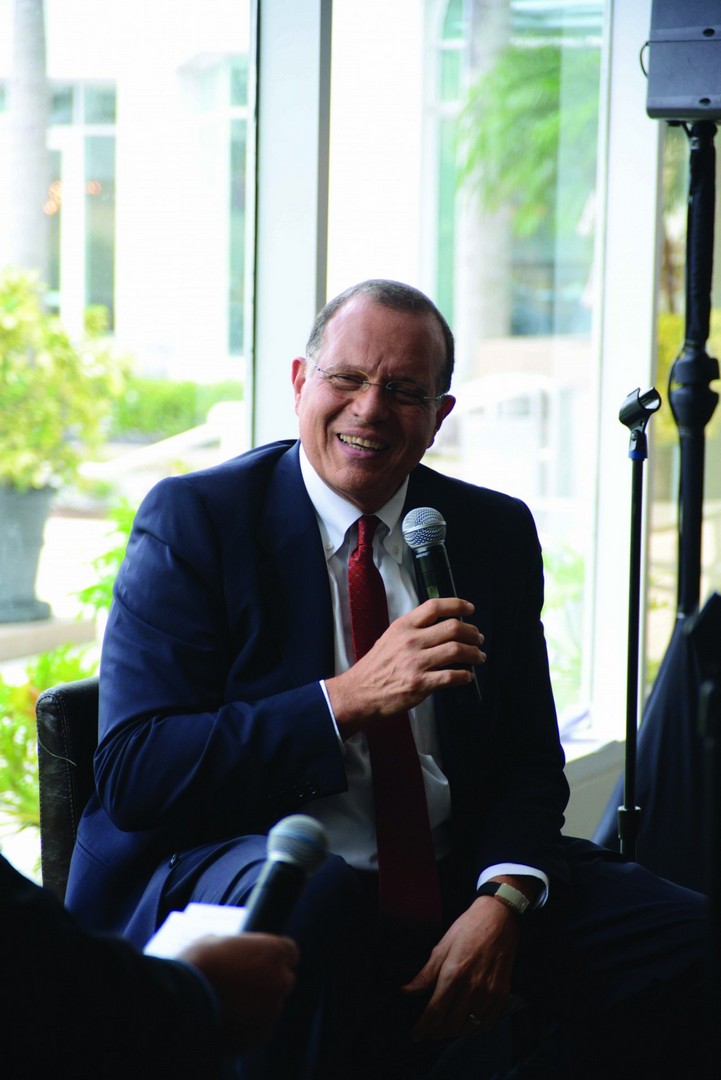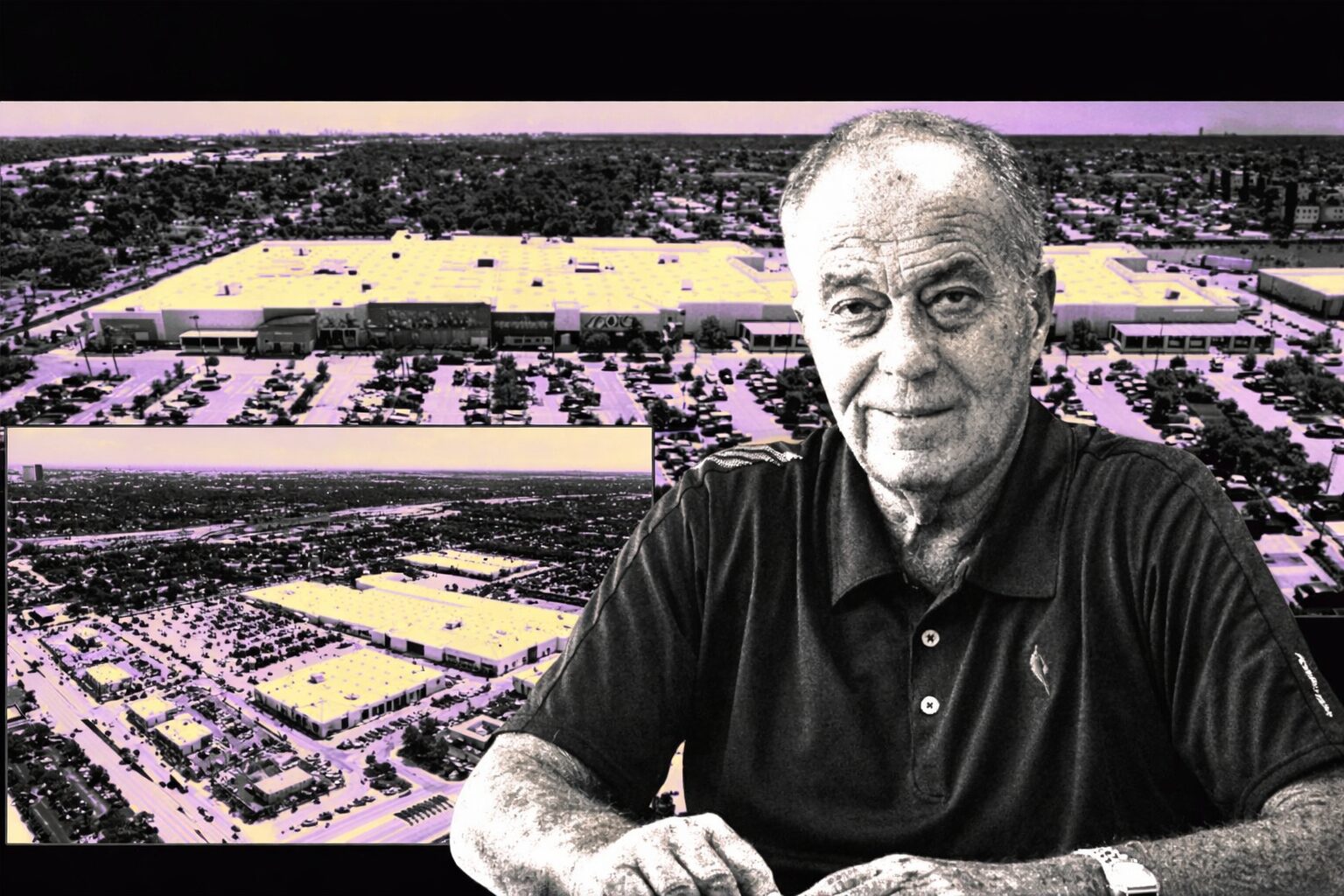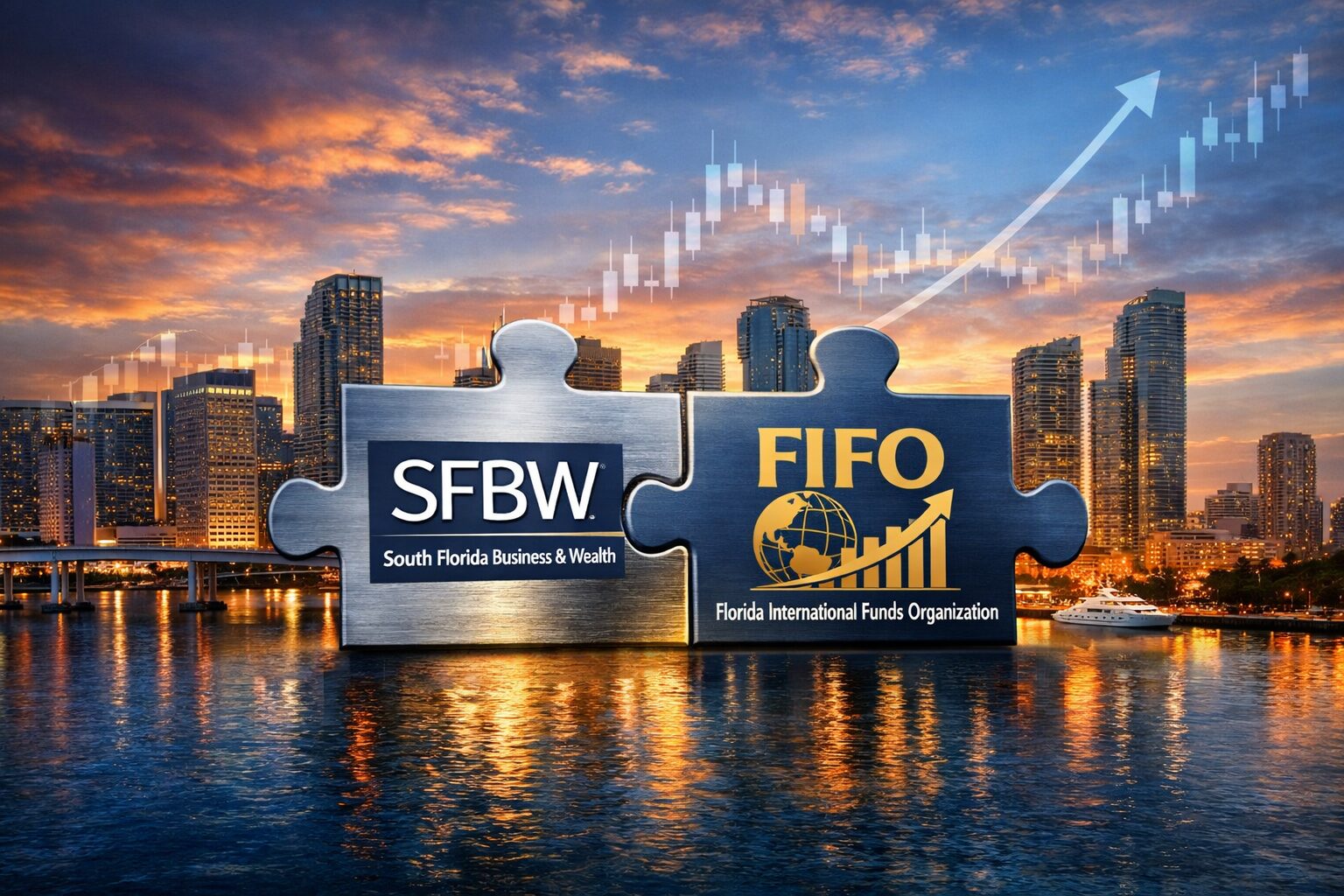Dr. Nabil El Sanadi has had an interesting life journey, starting with being born to parents in Egypt who were part of the minority Coptic Christian faith. During our CEO Connect, he shared how he applied to medical school on a dare, his love of working in emergency rooms and the challenges of being president and CEO of Broward Health, one of the nation’s largest public health systems.
El Sanadi was interviewed by SFBW chairman and CEO Gary Press during a live event that included audience questions as well. The CEO Connect was held at GalleryOne, a DoubleTree Suites Hotel in Fort Lauderdale. It was sponsored by TD Bank and JM Lexus.
The following transcript has been edited for length and clarity.
I see you are a Six Sigma Black Belt. It must have been amazingly difficult to get that certification.
It was very hard. It took two-and-a-half to three years. What sparked my attention is, as a physician, I’m also on the board of medicine and I always worry about patients. It’s sad to know that even though we have 1.3 million surgeries in Florida, about 60 to 70 times in a year, there is a wrong eye, leg or patient surgery. They still have them. So, if you’re ever going for a surgery, they will make you mark the spot. They will have two people ask you your name, two people check the equipment, two people to decide which side (Is it the right knee or the left knee?) before they even have a scalpel touch the skin. So that’s what Six Sigma is all about. Zero error margins, that’s my policy.
You know there are a lot of headlines these days about how Christians are treated in Middle Eastern countries. You grew up in Egypt. Can you give me insight into what’s happening today and also your experiences growing up and some of the hardships you probably faced?
In the Middle East, you actually can tell a person’s religion by their name. El Sanadi is not a particularly Muslim name. My parents had the wisdom of thinking, “Where are our children going and are they to be going to be discriminated against?”
So they decided in 1969 to actually get a legal visa, obtain sponsors and travel to the United States. A lot of discrimination back then was invisible because there wasn’t any social media or anything like that. Now, it is a lot more visible with Twitter and Facebook. The last thing that I saw was the beheading of the 21 Christians at the seaside [in Libya]. I’m thinking I could have been number 22.
How old were you when you entered the U.S.?
I was 10 or 11. I went to a French Catholic school, and they used to give us corporal punishments – that’s how I have the scars on my knuckles. They were strict when it came to reading, sitting, studying and so on and so forth. Most U.S. citizens have not traveled; they don’t understand how different cultures have different emphases on academics. That helped me a lot as far as being disciplined. I’m like a permanent student.
I have a 15-year-old and a 22-year-old and they are glued to their electronic devices. Do you think this generation will be able to fit into a workplace that demands that you focus on your work about eight hours a day?
Workplaces are transforming their structures and their environments to use electronic communications. Telemedicine, telepsychiatry and teleneurology are using those tools. We have 1,500 beds and two trauma centers. What I am thinking is less bricks and mortar and more telemedicine. Some of the health care systems are discharging the patients and giving them ways they can communicate with their providers for vital signs, blood sugar and blood pressure. I think more people are going to using those devices.
You had some very interesting jobs before you were a doctor, even as a welder.
I made more money relatively speaking than I do now. It was a very, very hard job during high school summertime. I worked at a place called Euclid Inc. I’m certified to operate an overhead crane – 25, 50 tons. I worked the punch press. They are some of the most dangerous jobs in the world.
I heard you applied to medical school because a friend said you would not get in.
It was a bet. It was at Case Western. I lived at home. I was a pocket protector-wearing student. We were at the commuters” club playing bridge and I asked, “What is the hardest thing to do?” They said, “Apply to medical school.” So I applied to Ohio State. I couldn’t go back to my mother and say, “I could be doctor,” and then not become one.
You have a long history in the emergency room field. What attracted you to that?
I actually trained as an internist. I did some cardiology for a year and it was boring, repetitive. With emergency medicine, reality is stranger than fiction. (Working as an administrator for Broward Health feels almost the same.)
I don’t know if you remember the 13-year-old girl that was with her mom in a minivan and a beam pierced through the window and pinned her to the seat. We got a call from the paramedics saying, “What should we do? Should we pull the beam out of her?” In medicine, you never pull an impaled object out. You come to the emergency room. I told them to drag the van over. They cut the roof off and cut the beam behind the seat.
The girl was composed; she was talking and said, “I need you to give me something for the pain.” I put her on oxygen, but her heart rate was too fast. We took her to the trauma resuscitation room. We put in a chest tube and pulled the beam out and discharged her in four days. The beam missed her heart by this much. [He holds his thumb and finger less than an inch apart.]
In an emergency room, you take chaos back. You control the environment. You work as a team member. I would advise you to come out on a Friday or Saturday night and hang out at the ER. You will see an unbelievable procedure of 14 people responding as a unit to save somebody’s life. It is totally different than a TV show.
Tell me about research; how important is research to Broward Health and why should people who live here care about things that are being uncovered?
My background is as a director of the emergency department at Case Western – a large emergency department. I’d ask questions and get answers. I’d find out if a drug would work. Is titanium better than ceramic for a knee joint? Research is actually the last option for patients that have no other options.
A little-known fact is that we are one of seven teaching hospitals in the state. We have over 100 residents. Part of the training programs for the residents is you have to do research. We are able to offer some patients a drug or a device for free. The hospital gets some money and the drug company gets to collect the data.
How is Broward Health leveraging information technology?
We are using information technology and telematics to measure everything. Information technology is absolutely essential. Telemedicine is absolutely essential. Consumers should be able to shop. They should be able to get on a computer and say, “I can get an operation for $3,500 and there’s no infection.”
I know that hospitals make money when people are ill, but it’s more important to teach people to be well. Can you expand on that?
Wellness is very important for us. Why wait until somebody needs open-heart surgery or a knee replacement? About 62 percent of children in the school systems in Florida are overweight and 23 percent of those children are obese, which is unbelievable. That’s a medical diagnosis for a 4, 5, 6, 7-year-old, and it’s a huge risk factor for coronary heart disease, arthritis, etc. We ask the kids questions like, “How many steps does it take to wear off a french fry?”
How many steps does it take to wear off a french fry? 310?
It’s about 607. They say 17 percent of health care dollars are spent during the last 60 days of a person’s life, which is this huge crisis. “I weigh 300 pounds. I got diabetes. I take my insulin, yet I drink alcohol; and then at the age of 55, all of a sudden, it’s open-heart surgery and stroke and high blood pressure.”
Where is the hospital when it comes to diseases like cancer? Are we going find the cure in our lifetime?
With cancer, every organ involves its own wild cells that multiply out of control. Each cell type needs to have its own chemicals to actually kill that kind of cancer. There’s new technology, so right now we’re using triggers for the immune system and they target brain tumors. You send the target cells to the tumor. Focused, genomic-based treatments and cures are very important.
I am, believe it or not, trying to hire pediatric geneticists who are going to help us with that, so we are cutting edge. We’re going to continue to grow as science grows. We want Broward Health to be an epicenter for science. We’re getting very close to HIV immunization. It depends how much money you dedicate and how much time you focus on curing a disease. ?














